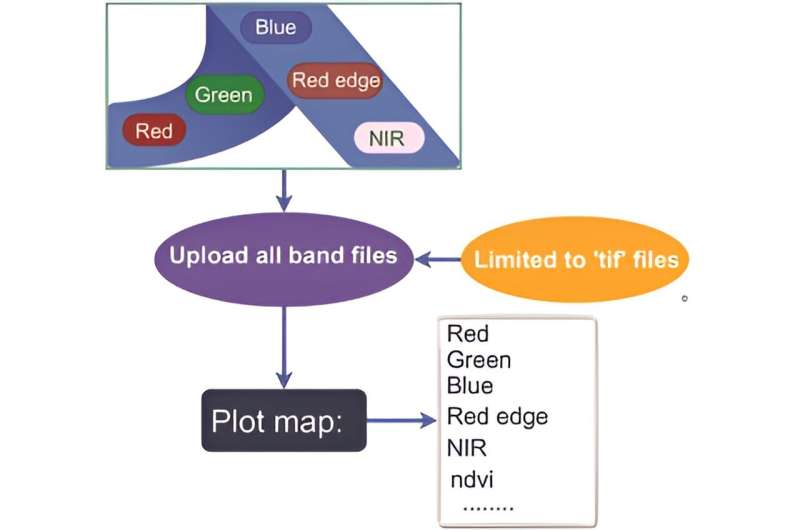
Unmanned aerial vehicles (UAVs) have revolutionized forestry by enabling high-throughput data collection of tree phenotypic traits. Despite advances in remote sensing and object detection technologies, accurate detection and spectral data extraction of individual trees remain significant challenges, often requiring laborious manual annotation.
Current research focuses on improving segmentation algorithms and convolutional neural networks for better tree detection, but widespread adoption is hindered by the need for accurate manual labeling. This highlights the urgent need for developing a more efficient, high-throughput method to autonomously extract individual tree spectral information.
Plant Phenomics published a database/software article titled “ExtSpecR: An R Package and Tool for Extracting Tree Spectra from UAV-Based Remote Sensing.”
This paper presents ExtSpecR, an open-source tool for single tree spectral extraction in forestry using UAV-based imagery, which provides an easy-to-use interactive web application. It streamlines the detection and annotation of individual trees, reducing the time and simplifying the process of extracting spectral and spatial features.
ExtSpecR’s user interface allows the upload of TIFF-formatted spectral images, enabling users to calculate vegetation indices and view outputs as false-color and VI-specific images. Its core phenotyping capabilities are facilitated by an interactive dashboard, where users upload point cloud data and multispectral images and then define the region of interest (ROI) for tree identification and segmentation.
This process uses functions such as “locate_trees” from the lidR package and provides 3D visualizations of the segmented trees. ExtSpecR’s performance has been evaluated against ground truth in tree plantations with varying canopy densities, demonstrating accuracies between 91% and 97% in detecting individual trees.
The functionality of ExtSpecR is compared to other tools, highlighting its unique strategy of integrating existing algorithms for an optimized user experience and providing comprehensive tree analysis by combining point cloud data with multispectral imagery.
While it faces challenges with large input data sizes and complex environments with overlapping canopies, recommendations include segmenting point cloud data and defining specific target areas to improve results. The paper suggests that future enhancements should aim to improve cloud quality and evaluate efficiency with LiDAR point clouds and hyperspectral imagery.
Overall, ExtSpecR proves to be a powerful, user-friendly tool for accelerating and simplifying plant phenomics extraction processes in forestry research.
More information:
Zhuo Liu et al, ExtSpecR : An R Package and Tool for Extracting Tree Spectra from UAV-Based Remote Sensing, Plant Phenomics (2023). DOI: 10.34133/plantphenomics.0103
Provided by
Plant Phenomics
Citation:
The role of ExtSpecR in streamlining UAV-based tree phenomics and spectral analysis (2024, January 16)
retrieved 16 January 2024
from https://phys.org/news/2024-01-role-extspecr-uav-based-tree.html
This document is subject to copyright. Apart from any fair dealing for the purpose of private study or research, no
part may be reproduced without the written permission. The content is provided for information purposes only.

